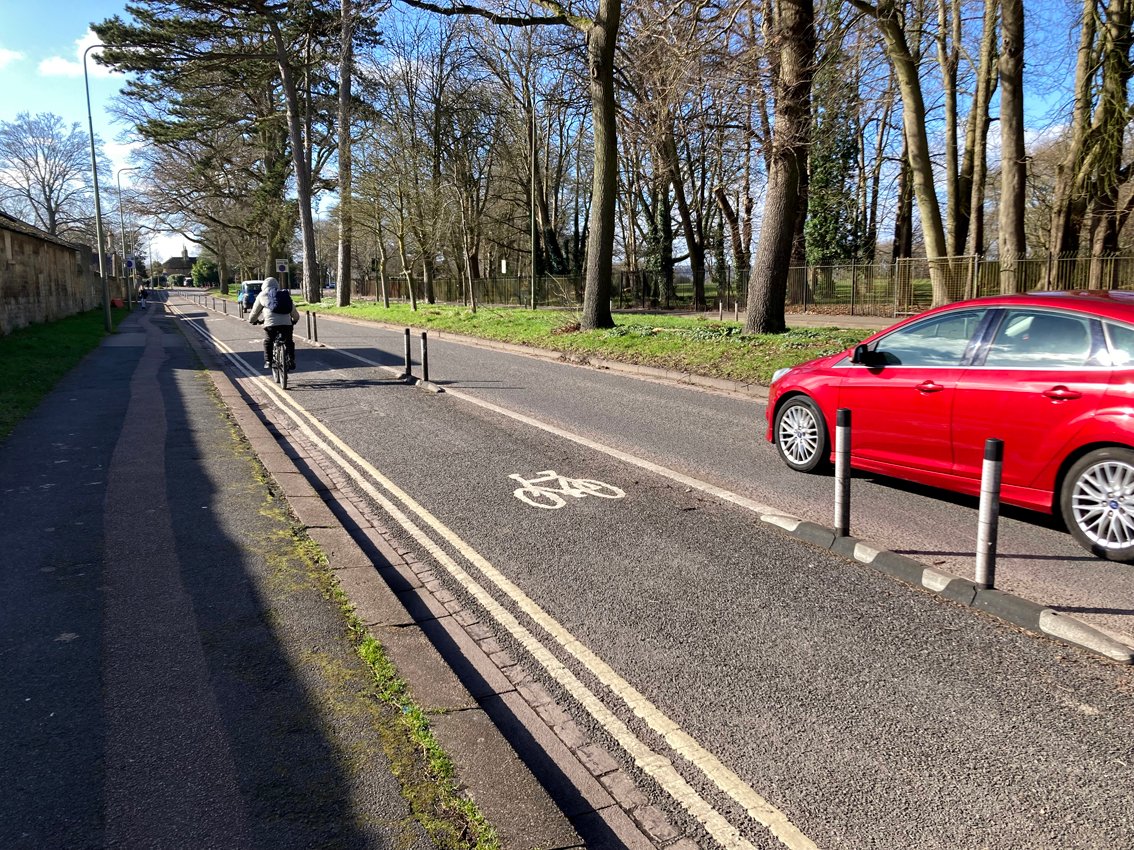Treating cars as guests on our streets

By Ian Loader
Ian is Chair of Cyclox
What if our cities, instead of favouring motor transport, expected cars to behave as guests? What would our streets look like if they were structured for the benefit of everyone, instead of being shaped around the needs of motorists?
Tackling the harm caused by cars
In my last blog I argued that cars ‘own’ our city streets, and we have come to accept this as the price we pay for the convenience of motor travel. But what harm does it cause? The impact of this dominance by motor vehicles includes:
- risks of traffic injury and death
- air pollution and carbon emissions
- restrictions on children’s play
- the daily drudgery of congested traffic
- a reduction in quality of life
Tackling these harms does not mean removing cars from cities. Many people rely on motor vehicles for their lives and livelihoods. Even in a world with better public transport and a safe and inclusive cycling infrastructure this will be the case. But reducing the harm caused by cars means challenging the idea that cars get to own cities. One way of doing this is to treat cars not as owners of cities, but as guests.
How would this work?
What does being a guest mean?
- It means that cars are in cities on sufferance.
- It means the rules governing car use (speed, where cars can and cannot go, the priority given to different forms of transport) give rights to all users of the city.
- It means equal access to the city for people walking, wheeling, cycling, scootering, using public transport and driving.
- It means recognising that urban space is shared space, not space where everyone gives way to the car.
Across the world, cities are changing the priority given to cars. They are creating new rules, and different infrastructure. In the UK the Highway Code now gives priority to walkers, cyclists and drivers, in that order, and road design is being changed to reflect this. The number of vehicles entering cities is limited by charges for congestion and emissions, or by schemes like Oxford’s proposed traffic filters. The default speed limit is moving towards 20 mph, and even lower in residential neighbourhoods.
Oxford is one of the cities changing the priority given to cars.

In Lambeth a new strategy is cutting use of the kerbside as parking space and is using that space to free up the pavement for walkers and wheelers. Parking is being reduced and trees, public seats, bike and scooter parking are being moved off the pavement and onto the kerbside.
Safe Streets: Shared City
We are rethinking how we live in and move around our towns and cities. Allowing our cities to be owned by the car is becoming less acceptable to some, if not all, people. There are strong views and conflicts about this. Making change happen requires the political imagination, will and skill to build a future for cities in which cars are accepted as guests, not as owners. Cyclox’ Safe Streets: Shared City campaign joins that collective effort. We believe the benefits will be felt by everyone – including drivers.
Join us on 25 March to discuss ‘Car brain: what is it and can it be cured?’
